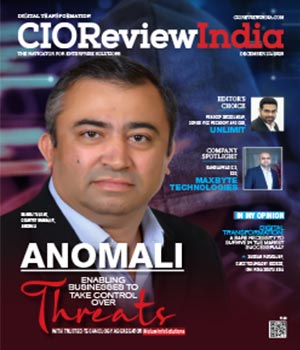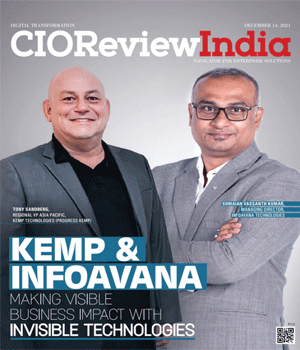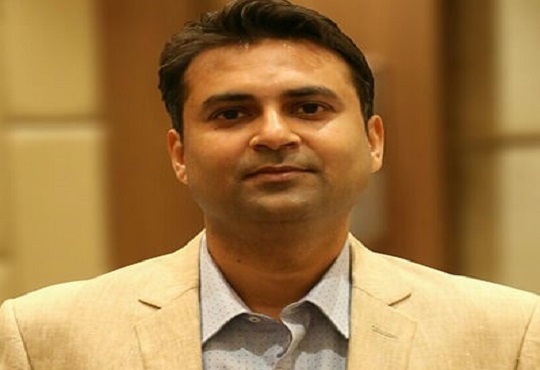
DIGITAL TRANSFORMATION AND MEDIA INDUSTRY
Vishal Bhasin, SVP Technology at Viacom18 Media Private Limited | Wednesday, 29 August 2018, 09:14 IST
 “Content is King” is the loudest cheer in the corridors of any media company. And rightly so. At the end of the day, it all narrows down to the number of eyeballs captured by content that decides the monetization potential. Recent mergers and acquisitions in the media industry to broaden the content spectrum and spend announcements made by media giants on original content creation is testimony that content, in fact, is the king. While content remains at the epicentre of growth, media industry is in midst of a revolution – driven predominantly by digital disruption across the value chain starting from content creation, video processing, storage to distribution, consumption, and monetization. Every aspect of this value chain is going through a transformation. Few factors which are redefining the media landscape are as follows:
“Content is King” is the loudest cheer in the corridors of any media company. And rightly so. At the end of the day, it all narrows down to the number of eyeballs captured by content that decides the monetization potential. Recent mergers and acquisitions in the media industry to broaden the content spectrum and spend announcements made by media giants on original content creation is testimony that content, in fact, is the king. While content remains at the epicentre of growth, media industry is in midst of a revolution – driven predominantly by digital disruption across the value chain starting from content creation, video processing, storage to distribution, consumption, and monetization. Every aspect of this value chain is going through a transformation. Few factors which are redefining the media landscape are as follows:
1) Connectivity and Mobility
A recent report by Internet and Mobile Association of India (IAMAI) said that “the number of Internet users in India is expected to reach 500 million by June 2018”. This rapid increase in internet usage has fuelled spiraling growth in Over The Top (OTT ) consumption in India. As per estimates, the nascent Indian OTT market has nearly 100M subscribers with an expected growth of 35% YoY. No doubt it dwarfs in comparison of 760M users who have access to TV but pervasive connectivity and increase smartphone usage brings up digital as the new kid on the block to reckon with.
2)Changing Consumer Behavior
The rise of digital has brought about a fundamental shift in consumption pattern from:
- Broadcaster push to customer pull of content
- Mass media to personalized media
- Prime time to My time
Now consumers can watch whatever they want, when they want. In fact, the words “binge-watching” burst into the mainstream in 2013 when Netflix started releasing episodes of its serial programming simultaneously.
3) Latest Technology Trends
The growing availability of open source and freeware, complimented by burgeoning public cloud has reduced the entry barrier for the start-ups and amateur content creators resulting in the building of innovative products in record time. A massive amount of viewership and social media data is now getting generated, captured, stored, harnessed and consumed in a near real-time basis. With accessibility to storage and compute at scale, insights to data is driving diversity of content and personalization of experience for the end consumer.
Disruption is a transformational wave consisting of both opportunities and threats. Missed opportunities can often drive a company into oblivion while successful harnessing can set the path for the next wave of growth. Digital disruption and hence transformation is here to stay and therefore it is incumbent on companies to comprehend and adopt core digital principles. It involves the integration of digital technology into all areas of a business, leading to a fundamental transformation of organizational activities, processes, model, and culture.
Following are the imperatives for any media company to successfully ride the digital wave:
1) Design Multi-Channel Architecture
If a company needs to create a strong digital brand, offer a seamless experience across devices - enable users to start watching video on their smart TV, stop, and pick up where they left off on another device or provide multi-screen experience, the focus has to be on the robustness and scalability of the underlying platforms. Media asset management platform, rights management platform, content management platform, CRM platform and monetization platform should not only have the capability to cater to both linear & non-linear publishing on a multitude of devices but also ensure omnichannel continuity.
2) Build Data-Driven Culture
Customers today have a plethora of viewing choices. Personalized content basis anticipation of user needs is an essential component to capturing their attention for an extended duration. In a digital world where everything is connected and all that the user does is discoverable, availability of data is a non-issue. Media companies, therefore, have very little choice but to develop techniques to radically utilize the data. Media companies should also integrate customer feedback continuously into their content and service creation process in order to adapt to evolving customer needs. One of the biggest roadblock in the adoption of data-driven culture is employee mindset which needs to be fundamentally changed, driven primarily by top management and supported by showcasing value by technology team.
3) Prepare for Next Generation Experience
Even though the Virtual Reality experience during the recently concluded FIFA world cup has received mixed feedback, it surely is an indication of the times to come – Immersive is all set to become default viewing experience. While the jury is still out on placing of all bets on producing only AR/VR content, neglect in following the trend will have the potential of pushing media companies into irrelevance in the future. Companies will have to come out of the waterfall approach to the agile mode of working to quickly gauge the ever-evolving experience expectation and make changes accordingly.
4) Focus on Security
The large public footprint of the media companies makes them a prime target for threat actors. Companies will have to focus on a holistic approach to security in the face of these threats. The cycle of Prepare-Protect-Detect-Response has to be strengthened and tested continuously even though the task is non-trivial for a media company where security measures can sometimes be deemed as coming on the way of creativity. For any digital journey to succeed, technology has to attain center stage across core business processes. Technology-driven automation, enablement, and innovation will hold the key to continuous evolution leading to the next wave of growth for any business and company.
CIO Viewpoint
The Constantly Evolving Technology Landscape in...
By Janifha Evangeline
Navigating the Digitalization of Mining Industry
By Janifha Evangeline
How To Achieve An Effective Digital Transformation
By Yogendra Singh, Head-IT/SAP, Barista Coffee Company Limited
CXO Insights
No-code platforms: Enterprise-wide Adoption...
By Rahul Murthi, Director at Acies
Unleashing the Potential of IT in Engineering...
By Gyan Pandey, Head - Digital/CDO, Voltas
Low Code and Artificial Intelligence - The...


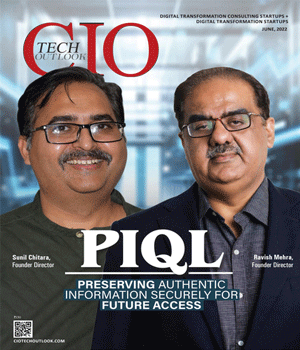
.jpg)
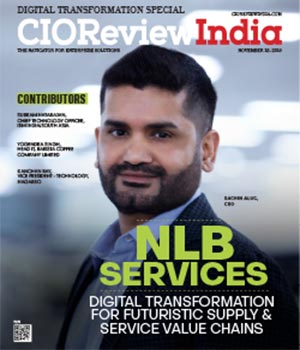
.jpg)
